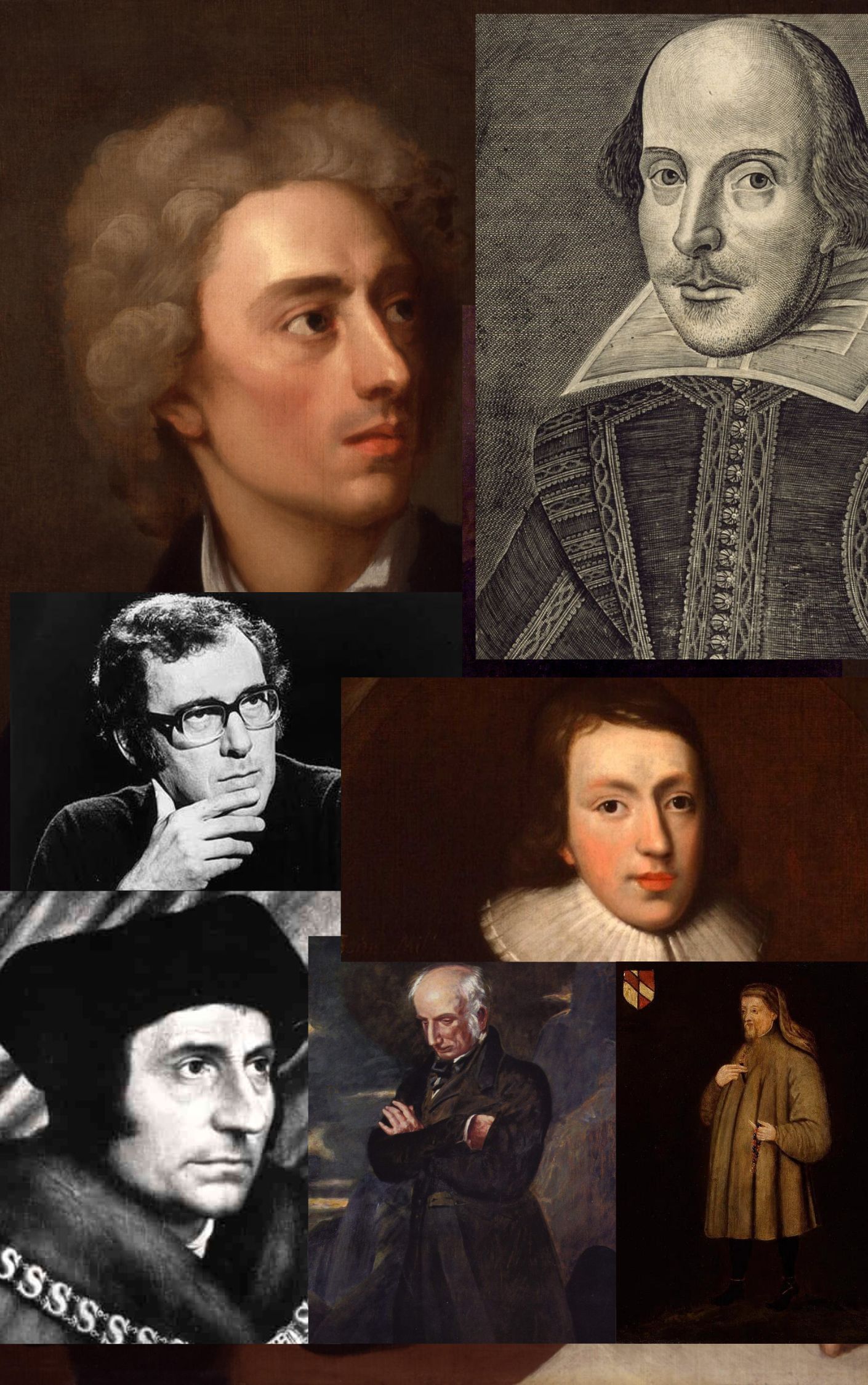The UGC NET English course covers a wide range of influential authors, poets, novelists, and playwrights from many historical periods. The world of literature has benefited greatly from the work of these authors.
Homer, the well-known Greek epic poet and author of the Iliad and the Odyssey, is a well-known figure in antiquity. Moving on to the Middle Ages, The Canterbury Tales by Geoffrey Chaucer provides a vivid picture of mediaeval England.
Shakespeare’s renowned works, including Hamlet, Macbeth, and Romeo and Juliet, are showcased during the Renaissance. The epic poem Paradise Lost by John Milton explores complex religious and political issues.
William Wordsworth and Samuel Taylor Coleridge distinguish out for their lyrical poetry and mystic imagination throughout the Romantic era. Charles Dickens, Jane Austen, and Thomas Hardy were well-known authors.
With their unconventional storytelling and writing techniques, writers from the modern and postmodern periods like Virginia Woolf, James Joyce, T.S. Eliot, and William Faulkner questioned conventions.
Influential writers who explore current societal concerns and offer a variety of viewpoints include Salman Rushdie, Toni Morrison, and J.M. Coetzee.
Together, these outstanding novelists, poets, playwrights, and authors who are included in the UGC NET English syllabus illustrate the rich fabric of literary heritage and the always changing landscape of human expression.
Important writers/poets/novelist/ dramatist from all Ages (Ugc Net English Syllabus)
| 1. Anglo-Saxon Period(410-1066) | 2. Anglo-Norman Period(1066-1340) | 3.The Age of Chaucer(1340-1400) | 4.The Revival of Learning(1400-1450) |
1. Beowulf Poet 2. Caedman 3. Venerable Bede 4. King Alfred the Great |
1. Geoffrey Monmouth 2. Layamon |
1. Geoffrey Chaucer William 2. Langland 3. John Wyclif 4. John Mandeville 5. John Gower 6. James First 7. Sir David Lidsay 8. Robert Henryson 9. William Dunbar 10.Gavin Douglas 11. John Skeleton 12. John Lydgate 13. Thomas Occleve 14. Alexander Barclay |
1. Roger Ascham 2. King Arthur 3. Thomas More 4. Erasmus 5 Thomas Wyatt 6. Henry Howard/Earl of Surrey 7. Richard Tottel |
| 5.The Age of Elizabeth (1550-1620) | 6. The Puritan age/Age of Milton(1620-1660) | 7.The Period of Restoration(1660-1700) | 8. Augustan Age/18th Century Literature (1700-1800) |
1. Edmund Spenser 2. Thomas Sackville 3. Philip Sidney 4. George Chapman 5. Michael Drayton 6. Dramatist 7. Christopher Marlow 8. Robert Greeen 9. Thomas Nash 10. John Lyly 11. Thomas Lodge 12. George Peele 13. Thomas Kyd 14. William Shakespeare 15. Ben Jonson 16. Beamount 17. Fletcher 18. John Webster 19. Thomas Middleton 20. Thomas Heywood 21. Thomas Dekker 22. Philip Massinger 23. John Ford 24. James Shirley 25. Prose writers 26. Francis Bacon 27. Richard Hooker 28. Walter Raleigh 29. John Foxe 30. William Camden 31. John knox 32. Hakluyt 33. Samuel Purchas 34. Thomas North |
1. John Milton 2. John Bunyan 3. Sir Thomas Browne 4. Jeremy Taylor 5. Izaak Walton 6. Thomas Fuller 7. Richard Baxter 8. Robert Burton 9. Thomas Otway 10. Nathaniel Lee 11. William Congrev |
1. Jeremy Collier 2. John Dryden 3. John Evelyn 4. Samuel Pepys |
1. Alexander Pope 2. Jonathan Swift 3. Joseph Addison 4. Richard Steele 5. Samuel Johnson 6. James Boswell 7. Edward Gibbon 8. Thomas Gray 9. Oliver Goldsmith 10. William Cowper 11. Robert Burns 12. William Blake 13. Richard Sheridan 14. William Godwin 15. Horace Walpole 16. Ann Radcliffe 17. James Thomason 18. William Collins 19. Thomas Percy 20. Daniel Defoe 21. Henry Fielding 22. Lawrence Sterne |
| 9.The Age of Romanticism (1798-1850) | 10. The Victorian Age (1850-1900) | 11. Age of modernism(1850-1900) | 12. Postmodern Literature (1939-To present ) |
| 1. William Wordsworth 2. S.T.Coleridge 3. Walter Scott 4. George Gordon Lord 5. Byron 6. P.B.Shelly 7. John Keats 8. Thomas Love Peacock 9. Charles Lamb 10.Thomas De Quincy 11. Jane Austen |
1. Alfred Tennyson 2. Robert Browning 3. Elizabeth Browning 4. Dante Gabriel Rossetie 5. William Morris 6. Charles Dickens 7. William Makepeace Thackeray 8. Mary Ann Evans(George Eliot) 9. Charles Reade 10. Anthony Trollope 11. Charlotte Bronte 12. Emily Bronte 13. Mrs.Gaskell 14. Thomas Hardy 15. Thomas Babington Macaulay 16. Thomas Carlyle 17. John Ruskin 18. Mathew Arnold 19. John Henry Newman 20. John Addington Symonds 21. Darwin |
1. Rudyard Kipling 2. H.G. Wells 3. John Galsworthy 4. James M.Barrie 5. Joseph Conrad 6. Arnold Bennett 7. G.B. Shaw 8. W.B.Yeats 9. George Orwell 10. Virginia Woolf 11. J.M.Synge 12. D.H.Lawerence 13. James Joyce |
1. Evelyn Waugh 2. Joseph Heller 3. John Masters 4. William Gaddis 5. Graham Green 6. Paul Scott 7. Julian Barnes 8. John Hawkes 9. Angus Wilson 10. John Barth 11. Kurt Vonnegut 12. John Fowles 13. John Whiting 14. Christopher Fry 15. Anthony Powell 16. Philip Larkin 17. C.P. Snow 18. Harold Pinter 19. Samuel Beckett 20. Luigi Pirandello 21. Bertolt Brecht |
All the Best
Read More : The Revival of Learning: Important Writers for UGC NET English (1400-1450)

Kindly provide detailed notes on works of Shakespear as per UGC Net
Sure Dear